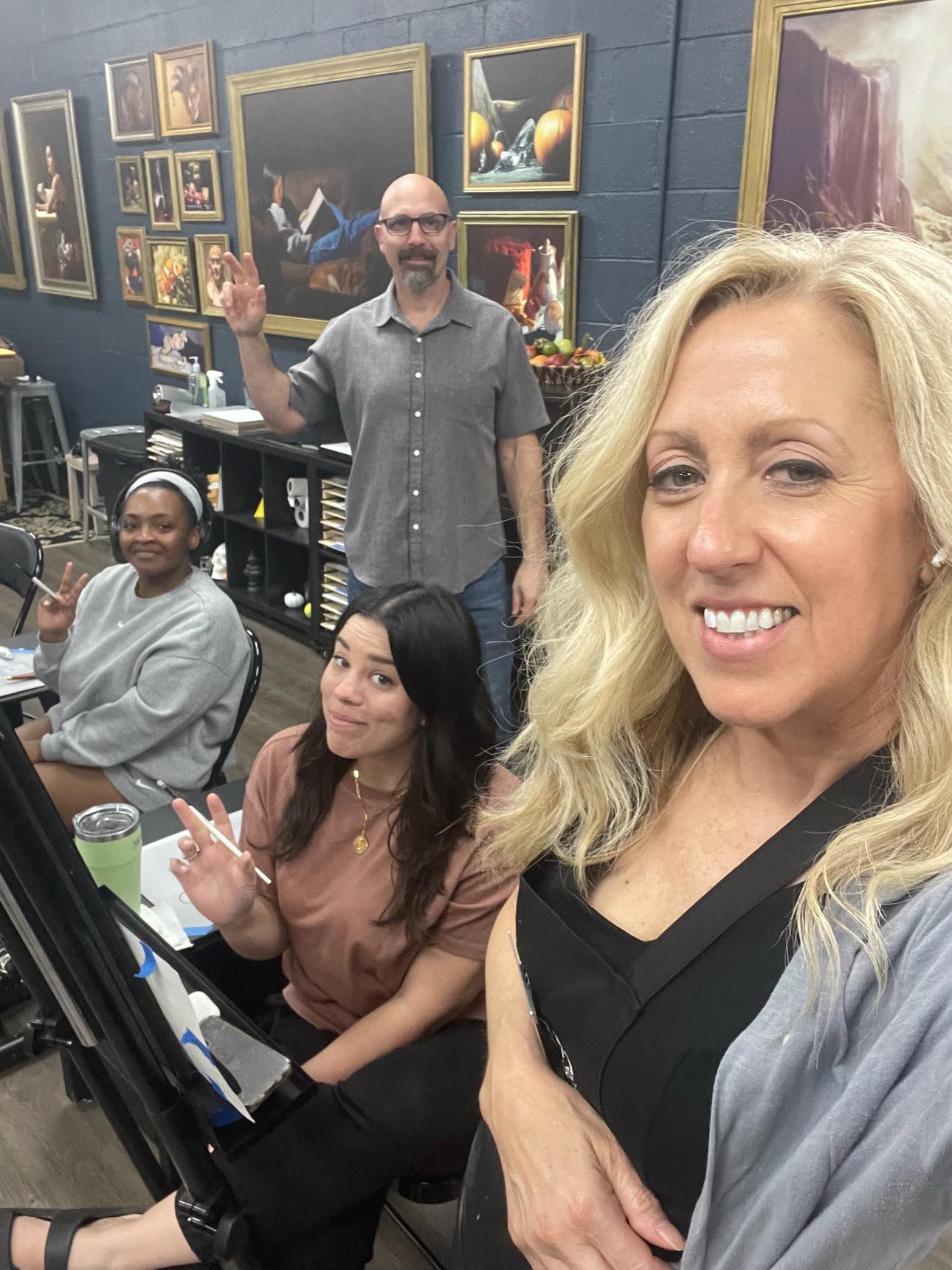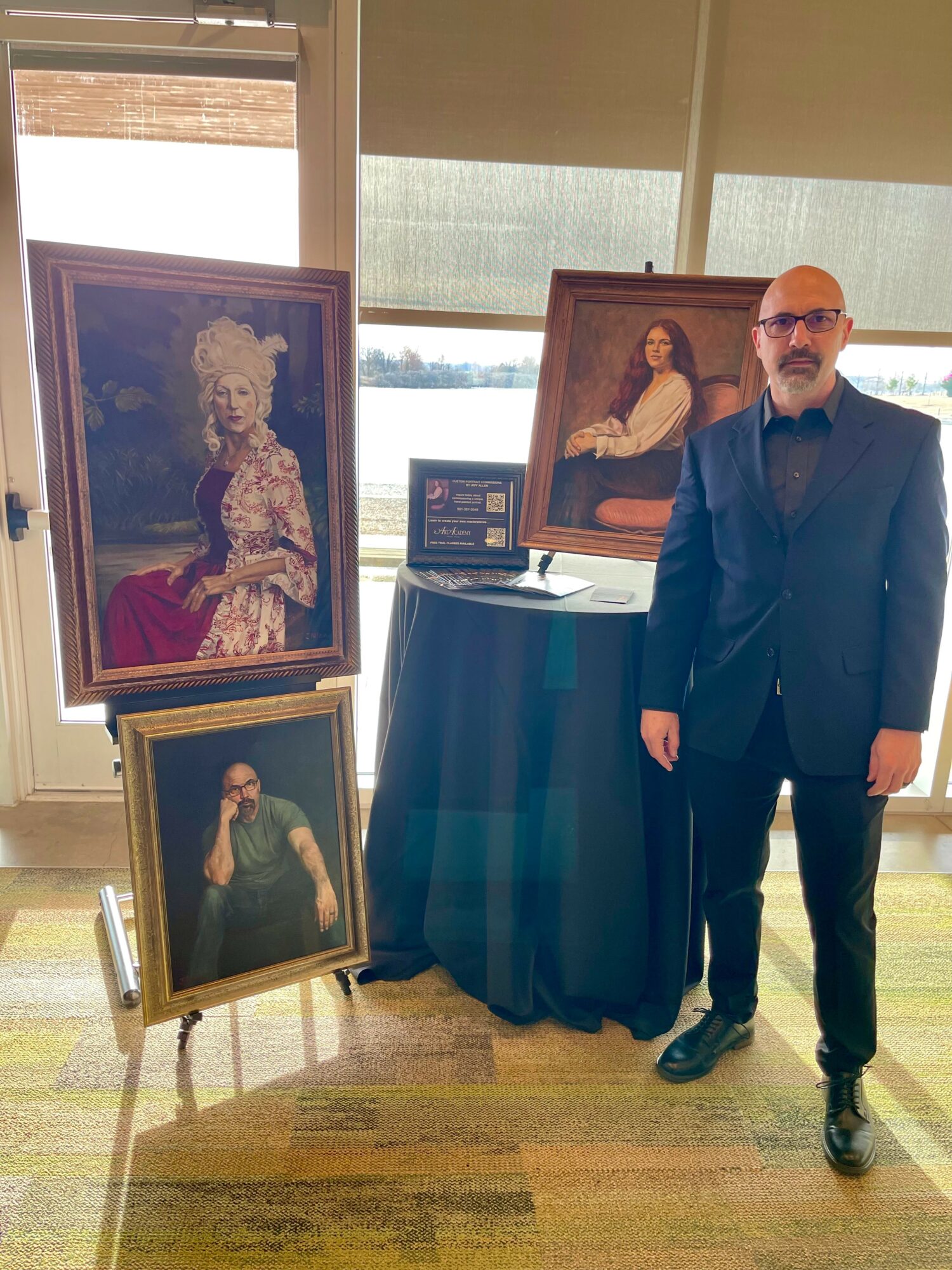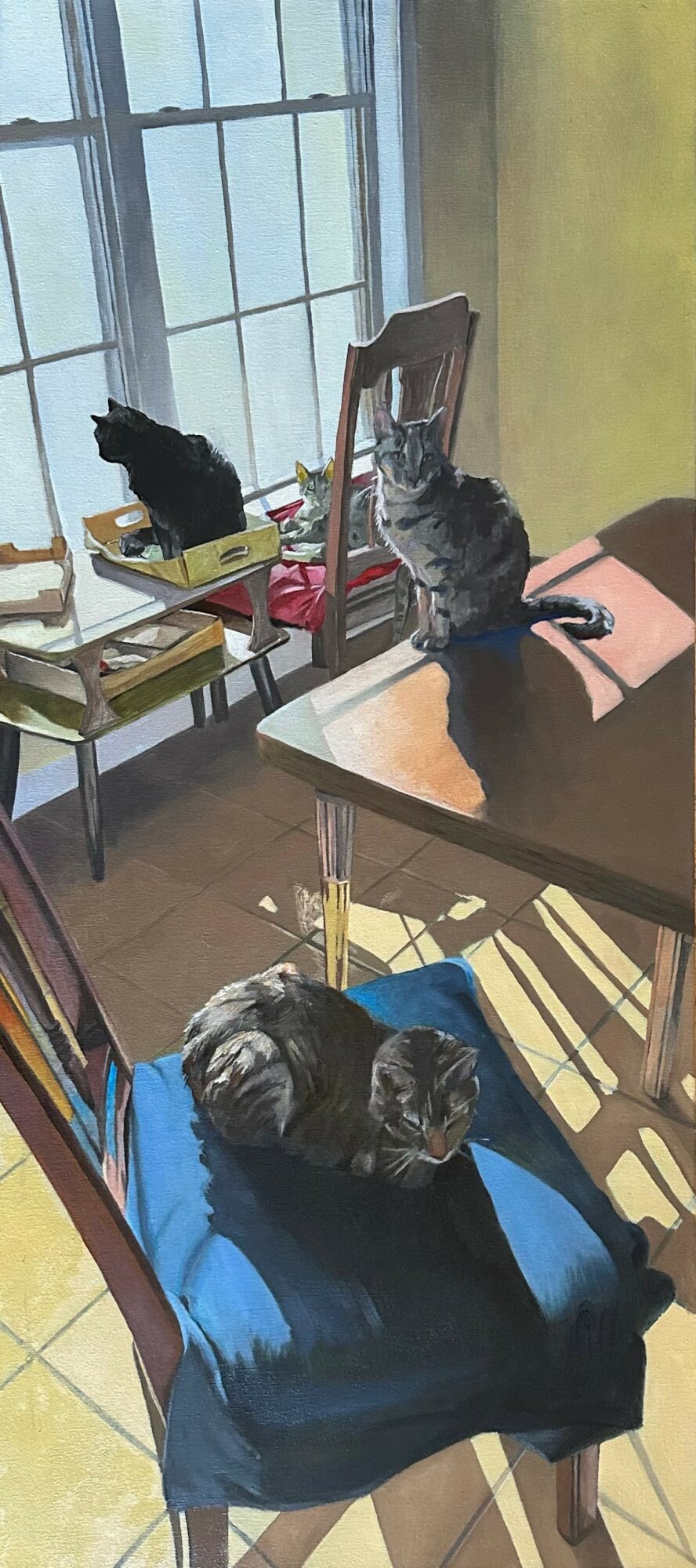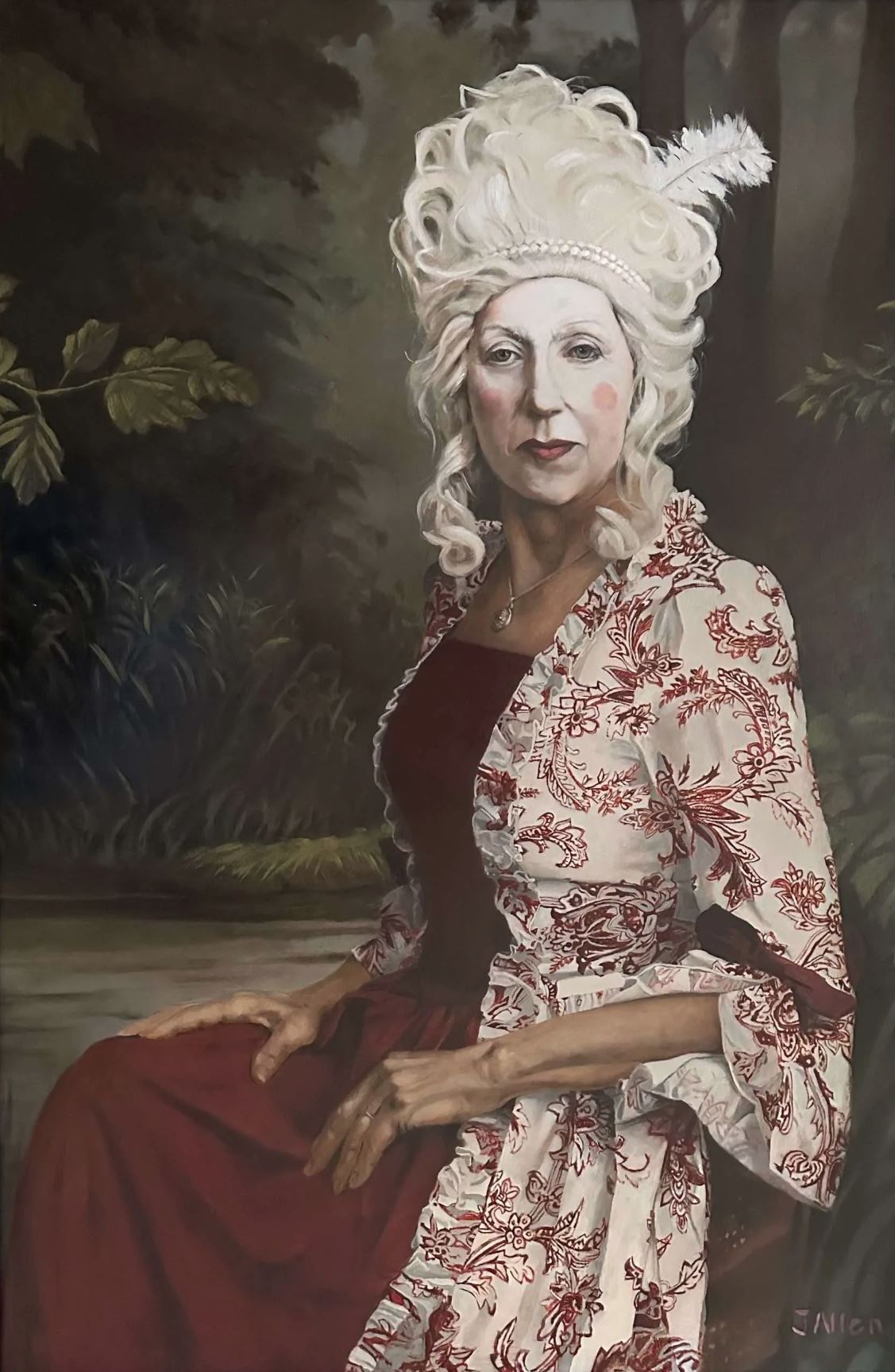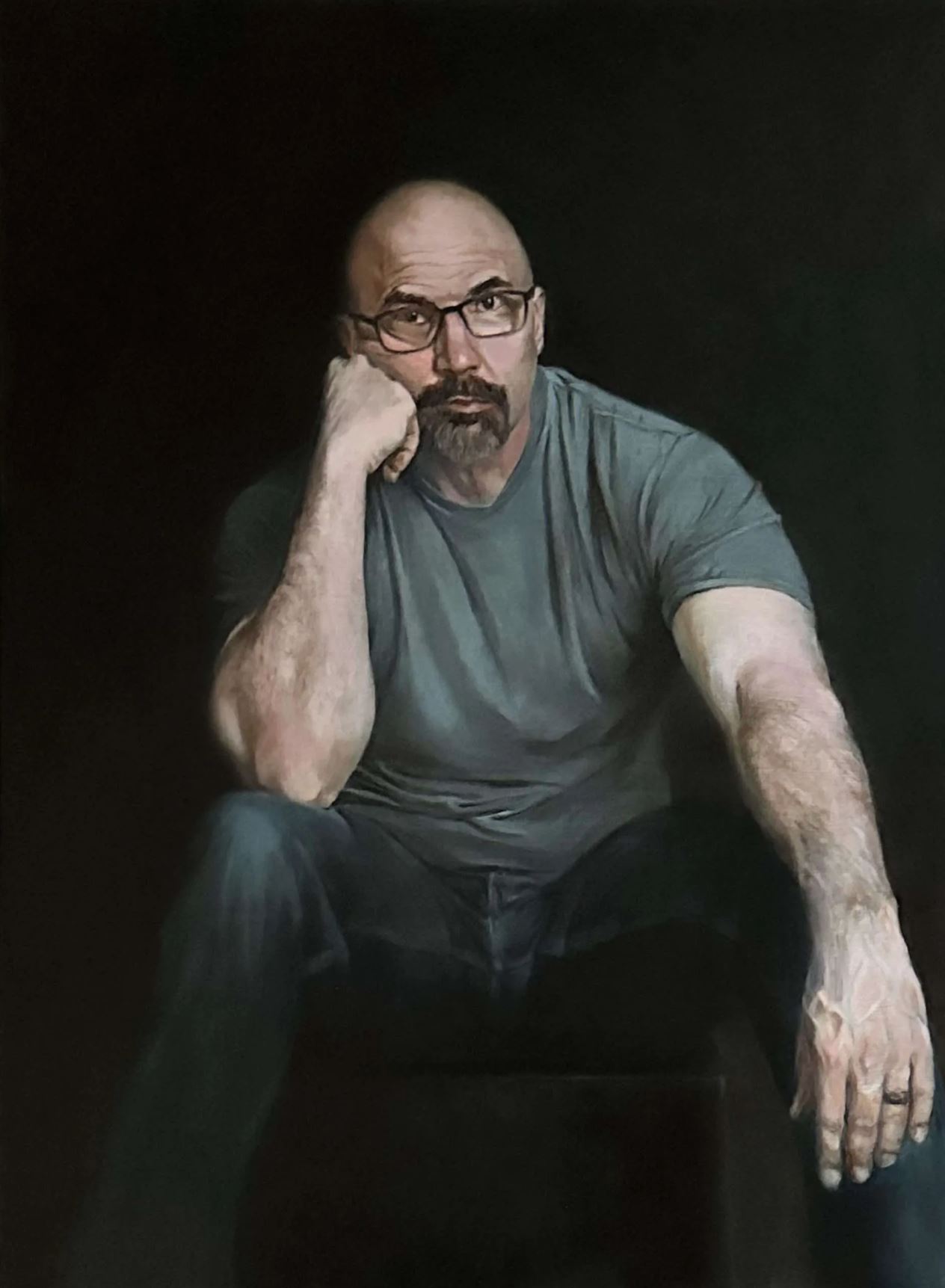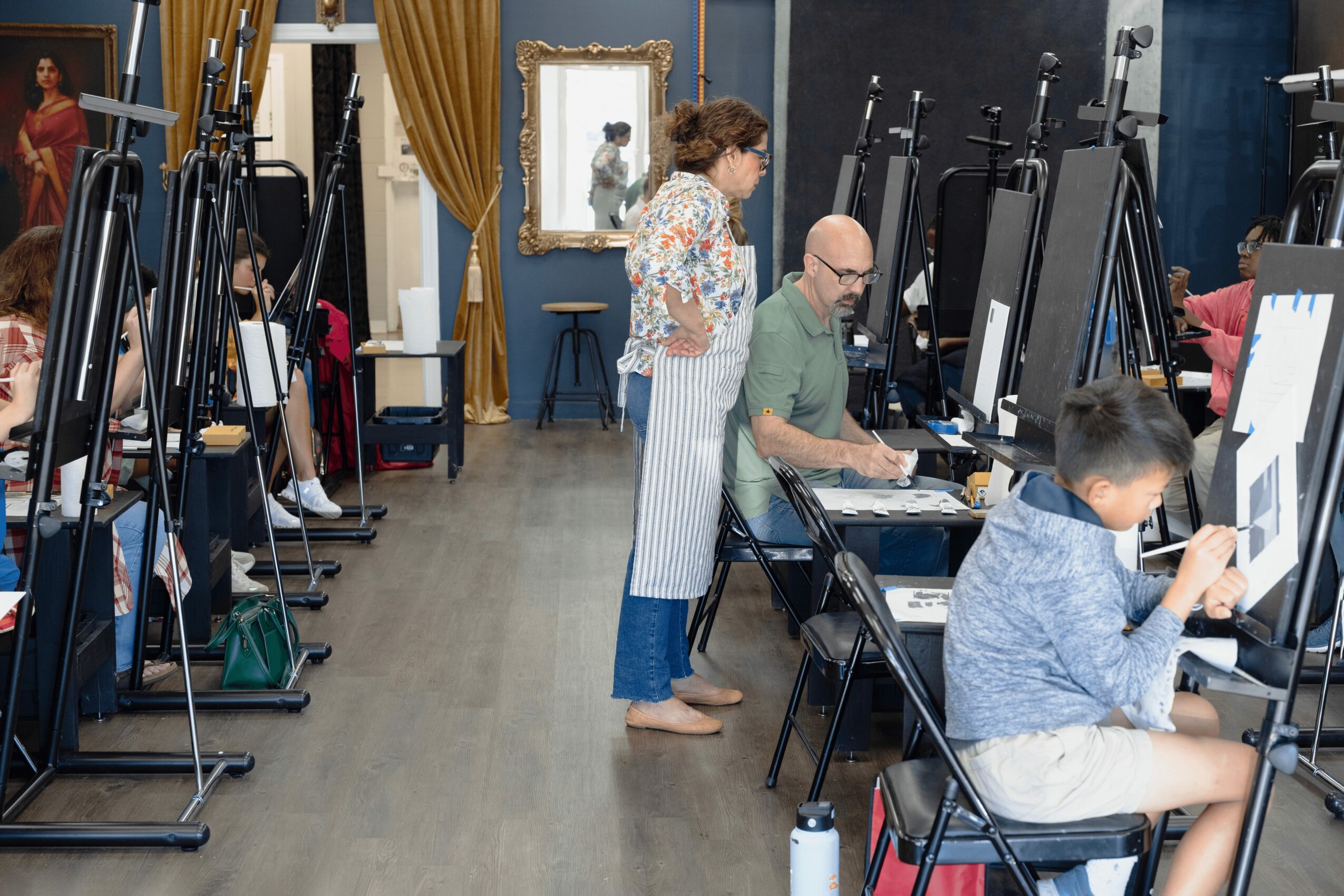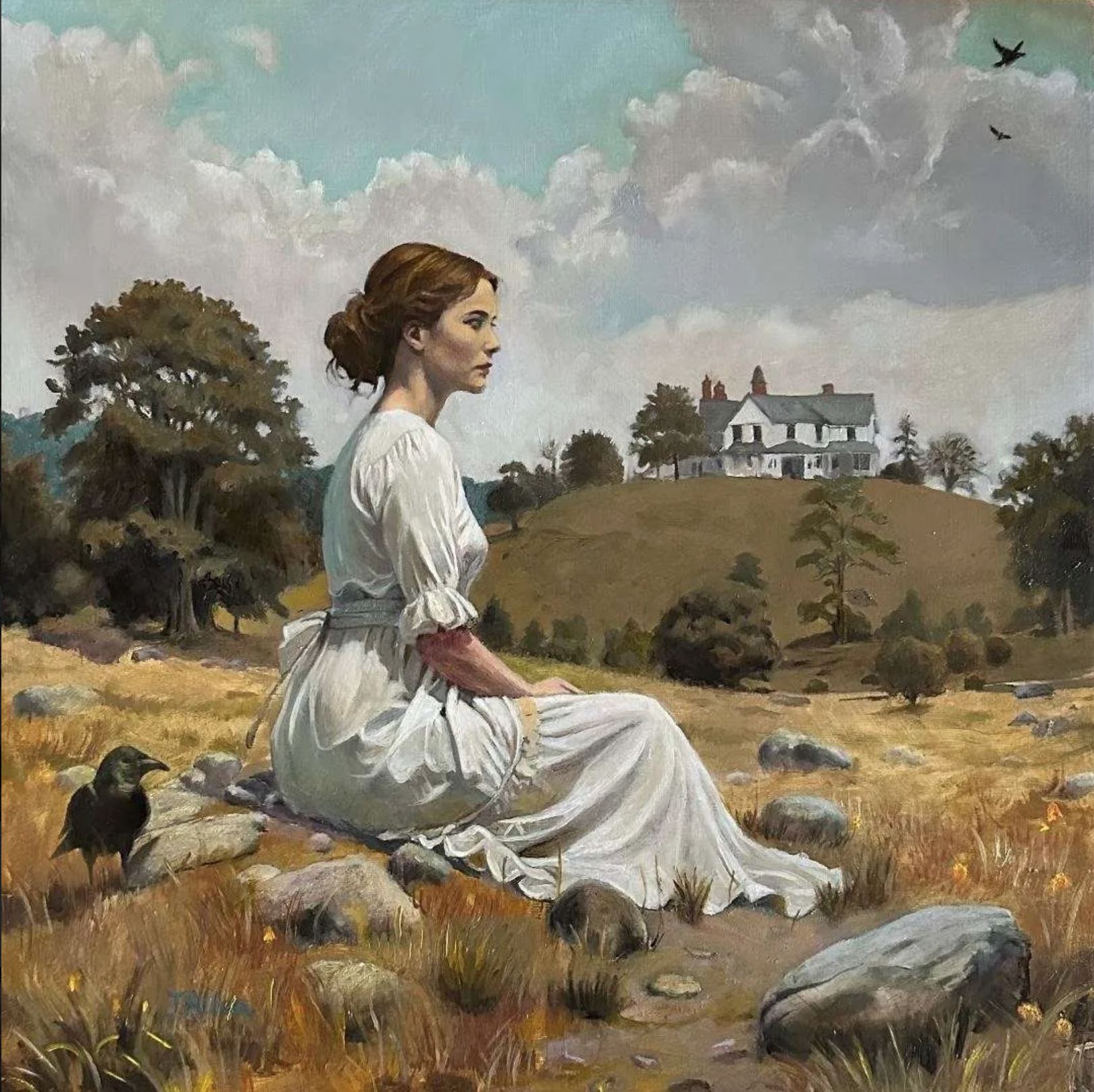

Today we’d like to introduce you to Jeff Allen.
Hi Jeff, so excited to have you with us today. What can you tell us about your story?
I’ve always been drawn to art for as long as I can remember. When I was a kid, I was constantly sketching monsters, superheroes, and anything from the sci-fi and fantasy worlds that inspired me. That early love of imagination and storytelling eventually led me to pursue a degree in drawing and painting at a four-year art school.
When I graduated, though, I felt frustrated. I had expected to come out ready to work as a professional artist, but I realized I still had a lot of gaps in my skills. I’d had many professors with different approaches, and while they were talented, I often felt lost because no one was connecting the dots for me as a student. I didn’t yet have a clear, structured understanding of how to build a painting from start to finish.
After college, I had to pivot into a technical career to pay the bills, but the desire to create never really went away. Years later, when YouTube became a thing, I started watching tutorials and teaching myself again. I did improve that way, but there are real limitations to learning from online videos. As a learner, you don’t necessarily know which tutorials to watch or in what order to watch them, and you don’t have any feedback loop to tell you if you’re actually doing something correctly. You also can’t always tell whether what you’re watching is what you should be learning at that stage. So while YouTube helped me pick up new techniques, it didn’t give me a clear, structured path or the kind of guidance that builds lasting confidence and consistency.
That’s when I discovered the Art Academy program. It approached painting in a way I’d never seen before: as a complete system of simple, learnable steps. You master one step at a time, then layer the next one on top of it. It doesn’t assume prior knowledge — it just builds skill through practice and structure. When I went through the curriculum myself, my confidence and consistency skyrocketed. For the first time, I knew I could trust the process and reliably produce work I was proud of.
That experience completely changed my relationship with art. I became passionate about helping other people avoid the same struggles I went through. When I looked around Memphis, I realized that most art education fell into two extremes. On one hand, university programs often don’t focus enough on the fundamentals. They tend to emphasize concept over technique, and with multiple professors teaching in different ways, the quality and clarity of instruction can be inconsistent. Many instructors are excellent artists, but they sometimes take for granted what a beginner doesn’t yet know — it’s easy to forget what it feels like not to understand something you’ve internalized through years of experience. On the other hand, most local workshops are very narrow in scope. They’re great for artists who already have a solid foundation, but they’re too specific for true beginners, and the quality of instruction varies widely. I wanted to offer a better alternative — something structured, consistent, and grounded in fundamentals. That’s why I opened The Art Academy in Memphis: to fill that middle ground.
What I love most is seeing students — many of them beginners or teenagers — produce work they never thought possible. Most people think talent is the key, but I’ve learned it’s really about the right system, consistent practice, and a supportive environment. If you have the desire and you’re willing to show up and learn, anyone can do this. That’s why I do what I do.
We all face challenges, but looking back would you describe it as a relatively smooth road?
I think the biggest obstacle one has with anything they do is their own mindset and the limitations one puts on themselves. This creates fear which can be paralyzing and cause procrastination. Sometimes you just have to ignore the fear and limitations you think you have and go for it. Yes you will run into problems on your journey but you will find solutions to them. Most people will spend more time worrying about why they can’t do something than just trying to do whatever that thing is. So that is the biggest struggle in my mind and don’t get me wrong. It is a big hurdle to get past.
As you know, we’re big fans of Art Academy of Memphis. For our readers who might not be as familiar what can you tell them about the brand?
At the Art Academy of Memphis, we’re passionate about making art accessible to everyone. Our comprehensive programs teach art foundations and realistic oil painting to kids and adults, with a focus on building skills and confidence. What sets us apart is our proven method, which doesn’t assume prior knowledge or inborn talent. Instead, we treat learning art like learning any other skill – with dedication and practice, anyone can create quality artwork.
We’re most proud of the transformative impact our method has on our students, who often surprise themselves with their artistic abilities. Our approach accommodates anyone with an interest in art, regardless of their background or perceived talent. As we like to say, ‘Talent is a myth.’ We welcome anyone who’s willing to show up and put in the work – our goal is to empower them to unlock their creative potential.
To experience our teaching style and see the results for themselves, we invite people to join us for a free trial class. No commitment, no risk – just a chance to discover the artist within you. We want our community to know that art is not just for the select few; it’s for anyone who’s curious and willing to learn. Join us, and discover the joy of creating art that you’ll be proud to share with others.
In terms of your work and the industry, what are some of the changes you are expecting to see over the next five to ten years?
Over the next 5-10 years, I believe the art education industry will continue to shift away from traditional university models. The cost of art school can be prohibitively expensive, and the return on investment is often questionable. Many artists have successful careers without formal degrees, and the ability to produce high-quality work is often more valuable than a piece of paper.
The rise of online programs has democratized access to art education, but in-person instruction still offers unique benefits, such as instant feedback and personalized guidance. However, the quality of online programs can be inconsistent, and it’s essential to find instructors who can provide effective guidance and support.
Looking ahead, I think AI will be a significant disruptor in the creative industries. While AI-generated art may automate some commercial work, I believe it will also increase the value of traditional, human-made fine art. When people invest in artwork, they often want a piece created by a real person, with all the imperfections and uniqueness that comes with it. As a result, artists will need to adapt and focus on traditional endeavors that showcase their skills and humanity.
In response to these changes, I’m exploring ways to apply my teaching approach to other mediums. Realistic painting is a process-based skill that can be taught and learned, and I believe similar principles can be applied to other art forms. By developing new programs and courses that focus on traditional skills and human creativity, I hope to help artists thrive in a rapidly changing industry.
Pricing:
- Classes for teens and adults are $185 per month which allows you to come once per week for a 2.5 hour session
- The youth program is $110 per month for weekly 1 hour sessions.
Contact Info:
- Website: https://artacademystudios.com/location/memphis/
- Facebook: https://www.facebook.com/artacademyofmemphis
